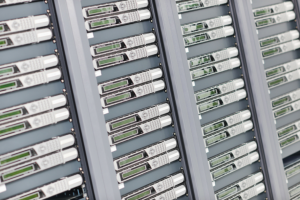 Amazon are constantly making changes and updates to their web services. As Compute continues to be a big part of AWS, EC2 has it’s own huge list of updates and when you have a busy agenda of your own, it can be tricky to keep up with what’s going on.
Amazon are constantly making changes and updates to their web services. As Compute continues to be a big part of AWS, EC2 has it’s own huge list of updates and when you have a busy agenda of your own, it can be tricky to keep up with what’s going on.
For your convenience, here is a list of 5 AWS EC2 Updates that you might have missed in October.
1) EC2 Dedicated Hosts
In early October, Jeff Barr took to the AWS blog to introduce dedicated hosts for EC2.
In his blog, Jeff explains that the Dedicated Hosts model will “allow you to allocate an actual physical server (the Dedicated Host) and then launch one or more EC2 instances of a given type on it.”
Dedicated Hosts not only allows you to ‘Bring Your Own Licence’ (as Amazon call it) to the cloud to reduce costs, but also adds the benefit of being able to remain compliant with regulatory requirements you might have to adhere to.
2) The Introduction of Spot Instances for Specific Duration Workloads
Yes, it’s a mouthful, but it’s also a new addition to Amazon EC2 that allows you to request EC2 Spot instances for up to six hours continuously at a flat rate.
This should help you reduce costs when you’ve got tasks that will only take a certain duration, such as modelling, encoding and rendering and batch processing etc.
3) EC2 Container Service Update – Container Registry, ECS CLI, AZ-Aware Scheduling, and more
The EC2 Container service (which supports Docker containers and allows you to easily run applications on a managed cluster of Amazon EC2 instances) has had a few updates introduced in October but here are a few of the headlines:
a) Amazon EC2 Container Registry (Amazon ECR)
This is a fully managed registry that will address issues flagged up by the user community and will make it easier to store, manage, distribute and collaborate around Docker container images.
It will become available later this year and will be easy to integrate into your current set up.
b) Amazon EC2 Container Service CLI
ECS CLI is a command line interface for Container Service and it provides high-level commands that help to streamline the creation, updating and monitoring of clusters and tasks from a local dev environment.
c) Scheduling is Now Aware of Availability Zones
In Jeff Barr’s blog about these updates, he explains, “the service scheduler is availability zone aware. As new tasks are launched, the service scheduler will spread the tasks to maintain balance across AWS availability zones.”
4) AWS Lambda Supports Python & Versioning
This update means that you can now develop your AWS Lambda function code using Python. You can simply upload the Lambda Python code as a ZIP file using the AWS CLI or AWS Lambda console and AWS will take care of the rest.
In this update, it also possible to maintain multiple versions of your Lambda function code. This means you can easily control which function version is used in your different environments.
5) AWS SDK for Unity now supports AWS Lambda and Amazon Simple Email Service
Another mouthful – The AWS SDK for Unity now supports AWS Lambda. This means you can perform cloud functions from your games built on Unity without the need to provision infrastructure.
As well as this, the AWS SDK for Unity now also supports the Amazon Simple Email Service (SES) meaning you can send transactional emails from games built in Unity.
These are just some of the highlights of AWS EC2 updates in October and you can find out more about all of the many updates across AWS on their website.

